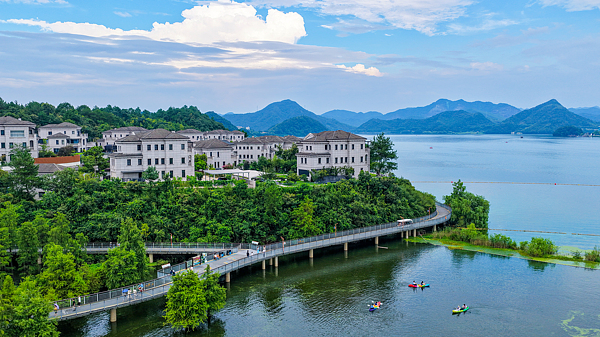Picture emerald forests and crystalline rivers weaving through rural landscapes – that's the vision behind China's concept that 'lucid waters and lush mountains are invaluable assets.' This weekend, a new report examines how this principle is reshaping ecological governance in the Chinese mainland and resonating with sustainable initiatives worldwide.
Titled "Lucid Waters and Lush Mountains for Beautiful China and World: China's Ecological Civilization Concept and Practice, and How They Inspire the World," the report was jointly released on Sunday by Xinhua Institute, a think tank affiliated with Xinhua News Agency, and the Research Center for Xi Jinping Thought on Ecological Civilization.
The report dives into:
- Historical Roots: Tracing the evolution of ecological thinking that elevates nature's value alongside economic growth.
- Theoretical Innovation: Unpacking new governance ideas that blend environmental protection with social development goals.
- Implementation in the Chinese mainland: Showcasing pilot projects, policy frameworks, and community-led conservation efforts.
- Global Significance: Highlighting how this model offers lessons and inspiration for sustainability advocates, policymakers, and entrepreneurs worldwide.
For young global citizens, business innovators, and changemakers alike, the report offers more than theory: it provides a blueprint for balancing growth with green impact. From reforestation drives to waterway restorations, the concept is sparking collaboration and fresh perspectives across cultures and markets.
As climate challenges intensify and travelers seek immersive eco-friendly experiences, the idea that protecting nature can fuel both local well-being and global progress is taking root far beyond its origins. This report marks a milestone in translating visionary policy into actionable steps – proving that, sometimes, the most valuable assets are found in the landscapes we safeguard for future generations.
Reference(s):
Think tank report highlights China's ecological governance innovation
cgtn.com




